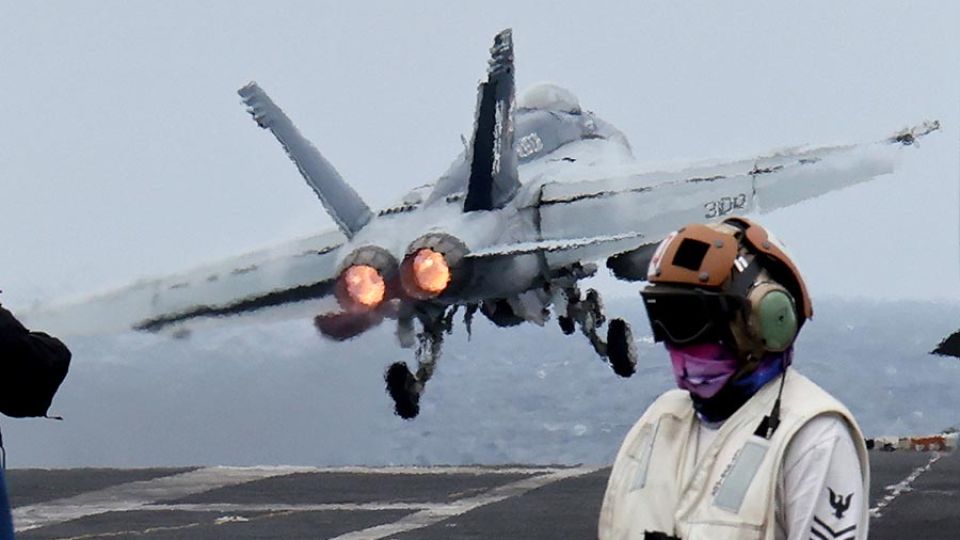April 15, 2024
SEOUL – The South Korean and US navies and the Japanese self-defense maritime force held a trilateral exercise in the high seas south of Jeju Island Thursday and Friday, in a combined effort to counter underwater as well as nuclear and missile threats by North Korea.
According to South Korea’s Navy, six warships from the three countries participated in the exercise — including the Aegis destroyer Seoae Ryu Sung-ryong of South Korea; the nuclear-powered aircraft carrier USS Theodore Roosevelt and Aegis destroyers Howard, Russell and Daniel Inouye Russell from the US; and Japan’s destroyer Ariake.
The catapults on the deck of Theodore Roosevelt accelerate the launch of fighters to 249 kilometers per hour in three seconds, an aircraft crew member explained.
The carrier can take about 90 aircraft. On deck were F/A-18 fighters, EA-18G electronic warfare aircraft and MH-60 maritime operations helicopters.
The two-day exercise is part of a multi-year trilateral exercise plan established by the leaders of the three countries at the August 2023 Camp David summit.
“The exercise was conducted with a focus on enhancing the joint response capabilities of South Korea, the US and Japan in the context of rising nuclear and missile nuclear threats, including North Korea’s recent ballistic missile launches,” the Navy said.
Speaking to reporters, Rear Adm. Christopher Alexander, commander of US Navy carrier strike group nine, said Thursday “the focus, the purpose of the exercise” is “allies coming together to work together to improve interoperability between our ships.”
“This is an opportunity for us to improve our tactical proficiency, an opportunity for us to meet our key allies in the region — the three-like minded navies that believe in peace and stability in the western Pacific — face-to-face, which is absolutely critical in a time of crisis,” he said.
More specifically, he said that they worked on undersea warfare, maritime interdiction operations, search and rescue operations, communication and data-sharing, and liaison officer exchanges.
But when pressed for details, he refrained from directly addressing how the trilateral operation might act as a deterrence against North Korea or China.
“This is a routine operation in international waters. This has been well-planned out, well-coordinated,” he said. “I would once again, just reiterate that with the United States, working with our allies in the regions, South Korea and Japan, we are well-prepared, well-postured to defend ourselves and defend our allies.”


